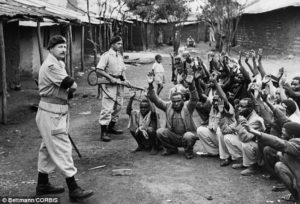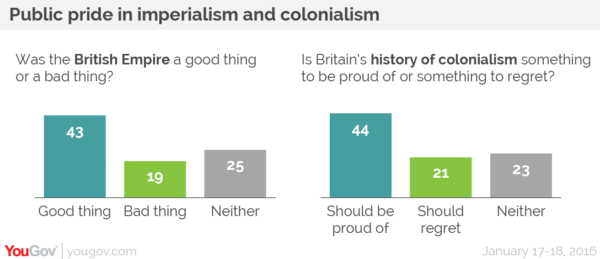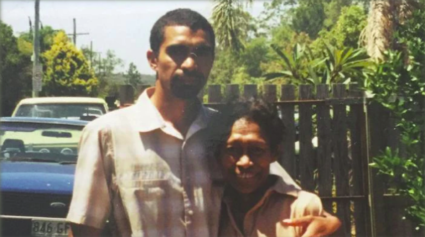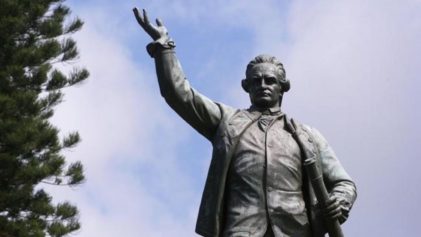Some people yearn for the “good ol’ days” of colonialism, which were a living nightmare for Black people. Why is that so?
A poll conducted in the United Kingdom found that a sizable number of people think the British empire was a good thing. Conducted by YouGov in advance of an Oxford Union debate on removing the statue of Cecil Rhodes from outside Oriel College, the poll found that 43 percent of British had a favorable view of the empire as the Guardian reported, while 44 percent thought the nation’s history of colonialism was a proud one. A mere 19 percent say the British Empire was bad, while only 21 percent believe historic colonialism is regrettable.
Further, fully half of UK Independence Party voters and 37 percent of Conservatives say Britain views its history too negatively and ignores all the “good” it did. In contrast, young people (40 percent) and Labour voters (43 percent), believe that given the oppression, murder and injustice involved, British view their history in too positive a light. In July 2014, a YouGov survey found that 49 percent of British believed the colonized countries were better off due to their colonization, versus 15 percent who said they were worse off. Moreover, 34 percent wanted Britain to have an empire today, while 45% did not.
In addition, as the “Rhodes Must Fall” movement has gained traction in an effort to remove the statue of the brutal and racist colonizer, 59 percent of British think the statue should stay exactly where it is. Only 11 percent approve of the removal of Rhodes, while 29 percent are uncertain.
Scots showed the highest support for removing the statue at 19 percent, followed by Londoners and Labour voters at 18 percent apiece. UKIP and Conservative voters are the most enthusiastic supporters of the Rhodes statue at 75 percent and 72 percent, respectively.
Rhodes systematically slaughtered Africans to make clear the land for the Anglo-Saxon race, who he said was needed to “save Africa from itself.” As BBC noted, Rhodes believed the English were the master race and once said, “I contend that we are the first race in the world and that the more of the world we inhabit, the better it is for the human race.”
And in an 1887 speech as Prime Minister of the British Cape Colony, he said: “The native is to be treated as a child and denied the franchise. We must adopt a system of despotism in our relations with the barbarians of South Africa.”
In 1894, Rhodes introduced the Glen Grey Act, which dislocated Blacks from their ancestral lands for the benefit of industrial development. Counterpunch noted that Rhodes once said “I prefer land to n****rs.”
At its peak in 1922, one-fifth of the world’s population and one-quarter of the land suffered under the boot of the British. Consider what British colonization meant for African and Caribbean people.
For example, there was the Mau Mau massacre in Kenya, in which the British put down an uprising against white settlers. According to the Kenya Human Rights Commission, 90,000 Kenyans were executed, maimed or tortured and 160,000 people were detained in horrendous conditions.
And in India, during the 1919 Amritsar massacre, the British killed 379 to 1,000 people who protested colonial rule, and injured another 1,100 within 10 minutes, according to the Independent. In 1947, the British partitioning of India, which created Pakistan, led to sectarian violence leading to up to 1 million deaths. Moreover, during the British Empire, 12 to 29 million Indians died of starvation and famine due to the exportation of wheat to Britain. In 1943 alone, when Winston Churchill diverted food to British soldiers and other countries as famine plagued Bengal, up to 4 million Bengalis starved to death.
Churchill said: “I hate Indians. They are a beastly people with a beastly religion. The famine was their own fault for breeding like rabbits.”
Meanwhile, the British committed genocide against the Black Aboriginal people of Australia, their numbers dwindling from 1 million to 0.1 million in the first hundred years after the 1788 British invasion. By 1911, 90 percent of the Aboriginal population had been exterminated, and they were placed in concentration camps. On the island of Tasmania, between 1804 and 1834, the Black population of as many as 15,000 was decimated, with only 200 remaining, as women were raped, men were used for target practice and the babies roasted.
And so, this is the legacy of imperialism that the British remember with such pride?



